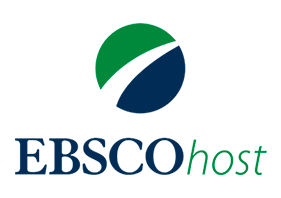Exploring sustainable consumption marketing among young adults in Mexico City
DOI:
https://doi.org/10.33304/revinv.v20n1-2025010Abstract
This study explores sustainable consumption among young adults in Mexico City to improve marketing strategies. Through interviews with experts and consumers, it examines individual and collective drivers of sustainable consumption for greater marketing effectiveness. The results emphasize the importance of offering trendy products and raising perceived value by highlighting personal and family benefits, such as health and collective benefits for the local or national community. Recommendations include enhancing accessibility by leveraging small shops and street markets and modernizing promotion through external influencers and user-generated content. It is also recommended that trust be fostered through public policies like sustainability scoring. Sustainable marketing can reshape consumer perceptions, making eco-friendly products more accessible, trustworthy, and valued as
investments in both personal well-being and societal progress.
Downloads
References
Ajzen, I. (1991). The theory of planned behavior. Organizational Behavior and Human Decision Processes Organizational Behavior and Human Decision Processes, 50(2), 179–211. https://doi.org/10.1016/0749-5978(91)90020-T
Ajzen, I. (2006). Constructing a theory of planned behavior questionnaire. Biofeedback and Selfregulation, 17(January 2006), 1–7. https://doi.org/10.1016/0749-5978(91)90020-T
Alhaddi, H. (2015). Triple Bottom Line and Sustainability: A Literature Review. Business and Management Studies, 1(2), 6–10. https://doi.org/10.11114/bms.v1i2.752
Barnett, C., Cafaro, P., & Newholm, T. (2005). Philosophy and Ethical Consumption. In The ethical consumer (pp. 11–24). https://doi.org/10.4135/9781446211526
Barnett, C., Cloke, P., & Malpass, A. (2005). The politics of ethical consumerism: citizenship between individualisation and participation. Consumer Policy Review, 15, 45–51. https://www.researchgate.net/publication/42792807_The_Political_Ethics_of_Consumerism
Bezençon, V., & Blili, S. (2010). Ethical products and consumer involvement: what’s new? In European Journal of Marketing (Vol. 44, Issue 9/10, pp. 1305–1321). https://doi.org/10.1108/03090561011062853
Brundtland, G. H. (1987). Our Common Future: Report of the World Commission on Environment and Development. United Nations Commission, 4(1), 300. https://doi.org/10.1080/07488008808408783
Carrington, M. J., Neville, B. A., & Whitwell, G. J. (2014). Lost in translation: Exploring the ethical consumer intention-behavior gap. Journal of Business Research, 67(1), 2759–2767. https://doi.org/10.1016/j.jbusres.2012.09.022
Chan, E. S. W. (2013). Gap analysis of green hotel marketing. International Journal of Contemporary Hospitality Management, 25(7), 1017–1048. https://doi.org/10.1108/IJCHM-09-2012-0156
Combes, M. (2005). Quel avenir pour la Responsabilité Sociale des Entreprises (RSE) ? Management & Avenir, 6(4), 131. https://doi.org/10.3917/mav.006.0131
CONEVAL. (2016). EVOLUCIÓN DE LA POBREZA 2010-2016. https://www.coneval.org.mx/SalaPrensa/Comunicadosprensa/Documents/Comunicado-09-Medicion-pobreza-2016.pdf
Cruz Reyes, M. A. (2016). Generación de valor sustentable en la industria agoalimentaria en México. https://repositorio.unam.mx/contenidos/98461
Dueñas Ocampo, S., Perdomo-Ortiz, J., & Villa Casta, L. E. (2014). El concepto de consumo socialmente responsable y su medición. Una revisión de la literatura. Estudios Gerenciales, 30, 287–300. https://doi.org/10.1016/S0123-5923(13)70015-9
Dutta-Powell, R., Rhee, J. J., & Wodak, S. (2024). Two interventions for mitigating the harms of greenwashing on consumer perceptions. Business Strategy and the Environment, 33(2), 882–903. https://doi.org/10.1002/bse.3520
Elkington, J. (1998). Accounting for the triple bottom line. Measuring Business Excellence, 2(3), 18–22. http://dx.doi.org/10.1108/eb025539
Francois-Lecompte, A., & Roberts, J. A. (2006). Developing a measure of socially responsible consumption in France. Marketing Management Journal, 16(2), 50–66.
Freestone, O. M., & McGoldrick, P. J. (2008). Motivations of the Ethical Consumer. Journal of Business Ethics, 445–467. https://doi.org/https://doi.org/10.1007/s10551-007-9409-1
Fu, X., & Zimm, C. (2024). Towards a decent transport for all: The transport dimension of decent living standards for just transitions to net-zero carbon emission. Multimodal Transportation, 3(2), 100136. https://doi.org/10.1016/J.MULTRA.2024.100136
Giesler, M., & Veresiu, E. (2014). Creating the Responsible Consumer: Moralistic Governance Regimes and Consumer Subjectivity. Journal of Consumer Research, 41(3), 840–857. https://doi.org/10.1086/677842
Gossling, P. (1996). Psychologie sociale: L’individu et le groupe. Bréal.
Greenpeace México. (n.d.). Consumo responsable, consumo inteligente. Retrieved July 8, 2017, from http://www.greenpeace.org/mexico/es/Campanas/Agricultura--sustentable--y-transgenicos/Y-tu-sabes-lo-que-comes/Somos-lo-que-comemos-comamos-con-inteligencia/Consumo-responsable-consumo-inteligente/
Guari, A., & Knorringa, P. (2014). New Middle-Class Consumers in Rising Powers : Responsible Consumption and Private Standards. Oxford Devolpment Studies, 42(2), 196–216. https://doi.org/10.1080/13600818.2013.864757
Hofstede, G. (2017). Country Comparison - Mexico. https://www.hofstede-insights.com/country-comparison/mexico/
INEGI. (2021). Encuesta Nacional sobre Productividad y Competitividad de las Micro, Pequeñas y Medianas Empresas (ENAPROCE). https://www.inegi.org.mx/programas/enafin/2021/
Intermarché. (2025, March 5). Garantir une meilleure rémunération aux agriculteurs. https://www.intermarche.com/enseigne/magazine/merci-lait-citoyen?srsltid=AfmBOoomlFwQj4XG9Sokh2mzWnR5wMsqHVuQCuYV-NoWbalkCxvajUm9
Kilbourne, W. E., Beckmann, S. C., & Thelen, E. (2002). The role of the dominant social paradigm in environmental attitudes: A multinational examination. Journal of Business Research, 55(3), 193–204. https://doi.org/10.1016/S0148-2963(00)00141-7
Kotler, P. (2011). Reinventing marketing to manage the environmental imperative. In Journal of Marketing (Vol. 75, Issue 4, pp. 132–135). https://doi.org/10.1509/jmkg.75.4.132
Kotler, P., & Armstrong, G. (2012). Principles of Marketing. Pearson Prentice Hall. https://doi.org/10.2307/1250103
Lavuri, R., Akram, U., & Akram, Z. (2023). Exploring the sustainable consumption behavior in emerging countries: The role of pro-environmental self- identity,attitude, and environmental protection emotion. In Business Strategy and the Environment (Vol. 32, Issue 8, pp. 5174–5186). John Wiley and Sons Ltd. https://doi.org/10.1002/bse.3411
Le Monde. (2017, June 1). Climat : Donald Trump annonce le retrait des Etats-Unis de l’accord de Paris. Le Monde. https://www.lemonde.fr/donald-trump/article/2017/06/01/climat-donald-trump-annonce-le-retrait-des-etats-unis-de-l-accord-de-paris_5137402_4853715.html
Lee, K. (2008). Opportunities for green marketing: young consumers. Marketing Intelligence & Planning, 26(6), 573–586. https://doi.org/10.1108/02634500810902839
Lendrevie, J., & Lévy, J. (2014). Mercator (Dunod, Ed.; 11th ed.).
Liu, Z., Scrieciu, S., Srivastava, L., García-Montero, L. G., Borne, G., Deng, X., van de Kerk, G., Wohlgemuth, N., Chang, C. T., Demont, M., Stenberg, L., Rafael Peña de la Cruz, J., Makhado, R., & Masehela, K. (2010). Should sustainable consumption and production be a policy priority for developing countries and if so, what areas should they focus on? Natural Resources Forum, 34(1), 85–88. https://doi.org/10.1111/j.1477-8947.2010.01277.x
Martinez, M. G., & Poole, N. (2009). Fresh Perspectives 4 – Ethical consumerism: development of a global trend and its impact on development. 2005–2006. http://eprints.soas.ac.uk/7489/
McKenzie-Mohr, D. (2000). Fostering sustainable behavior through community-based social marketing. American Psychologist, 55(5), 531–537. https://doi.org/10.1037/0003-066X.55.5.531
Micheletti, M. (2003). Political Virtue and Shopping. Individuals, Consumerism, and Collective Action. Palgrave Macmillan US. https://doi.org/https://doi.org/10.1057/9781403973764
OCDE/CEPAL/CAF. (2016). Perspectivas económicas de América Latina 2017: Juventud, competencias y emprendimiento.
Oh, J. C., & Yoon, S. J. (2014). Theory-based approach to factors affecting ethical consumption. International Journal of Consumer Studies, 38(3), 278–288. https://doi.org/10.1111/ijcs.12092
Ottman, J. A., Stafford, E. R., & Hartman, C. L. (2006). Avoiding green marketing myopia: Ways to improve consumer appeal for environmentally preferable products. Environment, 48(5), 22–36. https://doi.org/10.3200/ENVT.48.5.22-36
Ozcaglar-Toulouse, N. (2005). Apport du concept d’identité à la compréhension du comportement du consommateur responsable. https://theses.hal.science/tel-00300664
Ozcaglar-Toulouse, N. (2007). Living for “ethics”’: Responsible consumption ineveryday life. Research in Consumer Behavior, 11, 421–436.
Papaoikonomou, E., Ryan, G., & Valverde, M. (2011). Mapping Ethical Consumer Behavior: Integrating the Empirical Research and Identifying Future Directions. Ethics & Behavior, 21(3), 197–221. https://doi.org/10.1080/10508422.2011.570165
Picard, M. (2020). Influencia de los factores externos en el consumo sustentable de los jóvenes de la Ciudad de México [Universidad Nacional Autónoma de México, México]. https://doi.org/10.13140/RG.2.2.30621.49128
Picard, M., & Ávila Montes de Oca, O. (2020). El nuevo concepto de mercadotecnia sustentable (capitúlo 1). In Estrategias de mercadotecnia en mercados específicos.
Picard, M. S., Manfredi, L. C., & Ávila-Montes de Oca, O. A. (2024). Estandarización de las definiciones de consumo ético, consumo responsable y consumo sustentable por análisis semántico, y tipología del consumo sustentable. AiBi Revista de Investigación, Administración e Ingeniería, 12(1), 243–252. https://doi.org/10.15649/2346030X.3426
Prothero, A., Dobscha, S., Freund, J., Kilbourne, W. E., Luchs, M. G., Ozanne, L. K., & Thogersen, J. (2011). Sustainable Consumption: Opportunities for Consumer Research and Public Policy. Journal of Public Policy & Marketing, 30(1), 31–38. https://doi.org/10.1509/jppm.30.1.31
Rakesh Bhargava, Et. al. (2023). A Study on Marketing Strategies for Sustainable and Eco-Friendly Products. Tuijin Jishu/Journal of Propulsion Technology, 44(4), 4481–4489. https://doi.org/10.52783/tjjpt.v44.i4.1694
Raufflet, E., Lozano, J.-F., Barrera, E., & García de la Torre, C. (2012). Responsabilidad Social Empresarial. In Pearson Educación (p. 368). https://economiaypoliticaspublicas.files.wordpress.com/2015/01/15-raufflet-responsabilidad-social.pdf
Santé Publique France. (2025, June 2). Nutriscore. https://www.santepubliquefrance.fr/determinants-de-sante/nutrition-et-activite-physique/articles/nutri-score
Shaw, D., Newholm, T., & Dickinson, R. (2006). Consumption as voting: an exploration of consumer empowerment. In European Journal of Marketing (Vol. 40, Issue 9/10, pp. 1049–1067). https://doi.org/10.1108/03090560610681005
Steenis, N. D., van Herpen, E., van der Lans, I. A., & van Trijp, H. C. M. (2023). Partially Green, Wholly Deceptive? How Consumers Respond to (In)Consistently Sustainable Packaged Products in the Presence of Sustainability Claims. Journal of Advertising, 52(2), 159–178. https://doi.org/10.1080/00913367.2022.2047841
Ulusoy, E. (2015). Experiential responsible consumption. Journal of Business Research. https://doi.org/10.1016/j.jbusres.2015.07.041
Valero-Gil, J., Escario, J. J., Belanche, D., & Casaló, L. V. (2023). Understanding organic food consumption in the European Union: the interaction between health and environmental consumer’s goals. British Food Journal, 125(11), 4017–4033. https://doi.org/10.1108/BFJ-10-2022-0907
Villa Castaño, L. E., Perdomo-Ortiz, J., Dueñas Ocampo, S., & Durán León, W. F. (2016). Socially responsible consumption: an application in Colombia. Business Ethics, 25(4), 460–481. https://doi.org/10.1111/beer.12128
Williams, J. (2024). Greenwashing: Appearance, illusion and the future of ‘green’ capitalism. In Geography Compass (Vol. 18, Issue 1). John Wiley and Sons Inc. https://doi.org/10.1111/gec3.12736
World Business Council of Sustainable Development. (2008). Sustainable Consumption Facts and Trends, From a business perspective - The Business Role Focus Area. In World Business council of Sustainable development.
Young, W., Hwang, K., McDonald, S., & Caroline J. Oates. (2010). Sustainable consumption: green consumer behavior when purchasing products. Sustainable Development, 18(1), 20–31. https://doi.org/10.1002/sd.394
Yue, B., Sheng, G., She, S., & Xu, J. (2020). Impact of consumer environmental responsibility on green consumption behavior in China: The role of environmental concern and price sensitivity. Sustainability (Switzerland), 12(5), 1–16. https://doi.org/10.3390/su12052074
Downloads
Published
How to Cite
Issue
Section
License

This work is licensed under a Creative Commons Attribution-NonCommercial-ShareAlike 4.0 International License.
This journal provides immediate free access to its content under the principle of making research available to the public free of charge, which fosters a greater exchange of global knowledge. This work is under a Licencia Creative Commons Atribución-NoComercial-CompartirIgual 4.0 Internacional (Creative Commons Attribution-NonCommercial-ShareAlike 4.0 International License) However, any request by the author to obtain permission for their reproduction will be evaluated.










